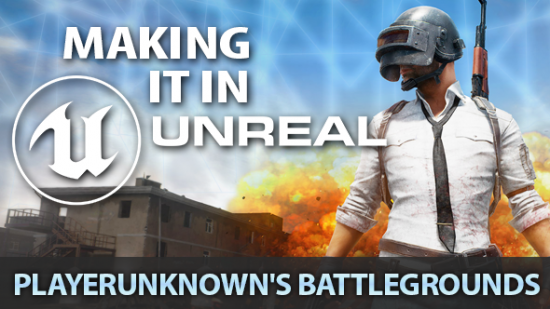PlayerUnknown’s Battlegrounds has basically won Steam thanks to a premise most of us picked up from movies – the simple ‘last man standing’ ruleset of battle royale. Yet the demands of its creation have been complex and sprawling. Battlegrounds is huge, both in terms of virtual space and player numbers, and those aspects have brought their own difficulties to its development.
New to PUGB? Check our guide to the best gear, weapons, and tactics.
Who better to explain the technical challenges behind the breakthrough shooter than PlayerUnknown himself, Brendan Greene? Although, in case you had the wrong idea, he’s quick to credit his team with the technical work.
“I wouldn’t touch the code in Battlegrounds,” Greene tells us. “People tell me to fix the game – if I tried, I’d break the fucking game. I’m the visionary, I’m not the coder.”
Moving the island
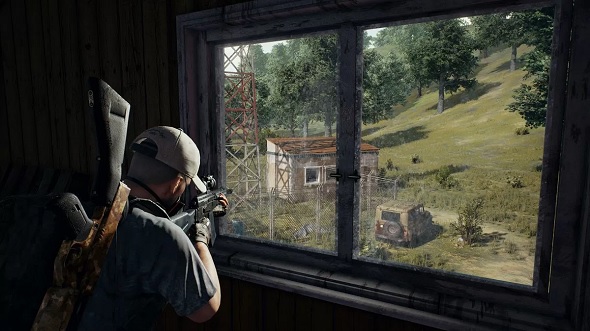 When Bluehole first started work on the battle royale standalone that would become Battlegrounds, they knew Unreal Engine 4 could do what they needed.
When Bluehole first started work on the battle royale standalone that would become Battlegrounds, they knew Unreal Engine 4 could do what they needed.
“Especially because there were so many indoor scenes – Unreal works well with indoor lighting,” Greene says. “The whole thing’s open source as well, so it allowed us to make the changes we needed to support an eight-by-eight kilometre world with 100 people.”
Anticto, Bluehole’s partner studio in Spain, helped develop tech to allow the game to render at long distances – essential for Battlefield’s scopes. They also introduced the level streaming that automatically loads in objects, up to about a kilometre around you, during play.
“I’m very happy with it, because it’s not really noticeable at all,” Greene says.
Perhaps the biggest technical struggle the Battlegrounds team have faced so far, however, is ‘origin shift’.
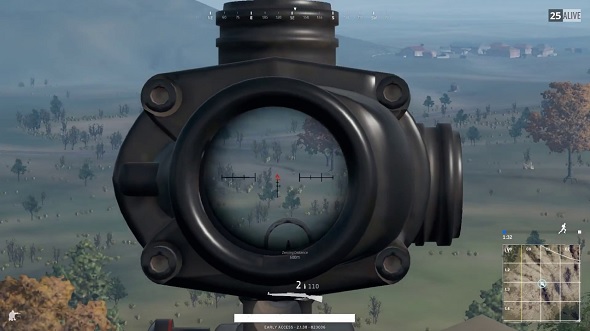
“The engine math library has limited precision, basically,” Greene explains. “Once you go over a certain decimal point, it just gets very wonky and not very precise at all. So when you’re working with bigger [map] distances of five or six kilometres, or even seven kilometres in a certain direction, it just results in scope jitter.”
How do you deal with a game world that regularly takes players too far from its central point, then? Cutting the map down wasn’t an option; that scale is a critical fixture of the battle royale formula that has since fired Battlegrounds into the upper echelons of Steam’s most-played list. The rather radical-sounding solution that Bluehole came up with instead was to pick up the origin point, and carry it with them.
“We had to write in our own origin shifting that basically shifts the whole world around the player, every 600 or so metres,” Greene says. “It’s dynamic, and we still have to improve it quite a bit, but we’ve got it down to about 100 milliseconds for the actual shift to happen. It’s all fixed, and whatever distance you are from the origin it’s always very smooth.”
The banning saga
Battlegrounds’ runaway success brings its own problems. Not least, creating systems to effectively moderate the bad behaviour that comes with a huge player base.
Greene warns that Bluehole don’t tend to talk about their security features very much; the more info is out there, the more the cheaters have to work with. But he does say that BattlEye, the anti-cheat software also used in DayZ and Ark, has been “fantastic.”

“They’re so proactive in tracking down new cheats,” he notes. “I’ve heard lately that there are really no public cheats out there that work for Battlegrounds, they’re all private cheats. That makes me happy. It’s a big step when it comes to getting rid of most of the cheaters from the game.”
Development time in the run up to Battlegrounds’ Early Access launch was focused on optimisation, but in the four months since Bluehole have been building out the game’s backend – in such a way that it can better track cheats. An entirely new data science team at the studio is now looking into methods to improve fair play.
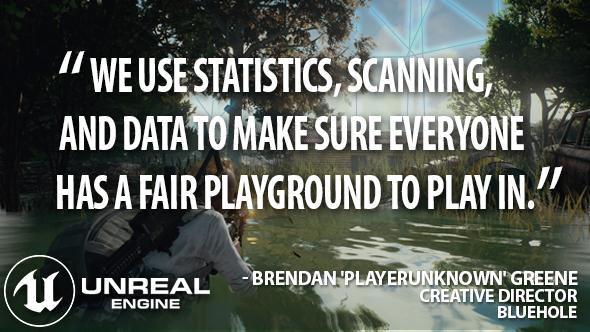
“Because the battle royale game mode is a closed loop, it’s very easy to track statistics and stuff,” Greene expands. “It’ll take us quite a few more months to implement all the systems we have planned, but there is a very focused plan on tracking as much as we can and using statistics, scanning, and data to make sure everyone has a fair playground to play in.”
Greene’s plans get more ambitious still. He’s been using his newfound status in the PC community to help Microsoft close up some holes in the Windows kernel itself.
“Because of our work with Xbox I was talking with Mike Ybarra, the corporate VP for Windows and Xbox gaming platforms,” Greene remembers. “And I just happened to mention to BattlEye, ‘Listen, I have this contact, let’s get you guys talking’. I opened up the communication between them to see if there’s anything we can do to make [Windows] more secure for games. It also benefits stuff like anti-viruses, so it’s good to be able to do that and try to improve the platform for everyone.”
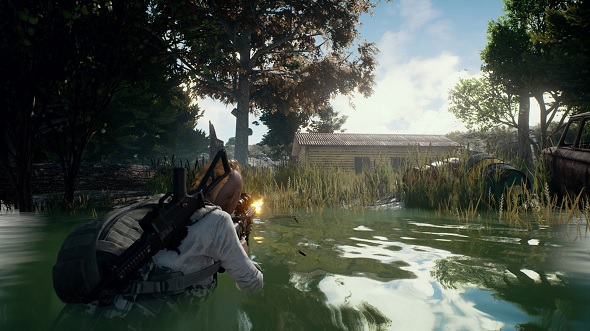
This, surely, is how you become the populist leader of PC gaming: not content to fight the cheats only at his own front door, PlayerUnknown stands vigilant against wider platform exploits in general. Yet he talks about cheat creators with something close to respect.
“The guys that cheat, and I happen to know some of the guys who write them, they’re just clever guys,” he says. “The way they think about stuff, it’s like those kids who took apart radios when they were younger to see how they worked. That’s essentially what they’re doing.
“Most of them aren’t malicious – they’re not doing this to try and kill your game. They’re doing it because they’re interested in code and breaking stuff. Other people then use it maliciously, but they themselves for the most part are just curious about how stuff works.”
PlayerUnknown’s Battlegrounds is currently on Steam Early Access for the PC.Unreal Engine 4 is now free.
In this sponsored series, we’re looking at how game developers are taking advantage of Unreal Engine 4 to create a new generation of PC games. With thanks to Epic Games and Cubit Studios.
